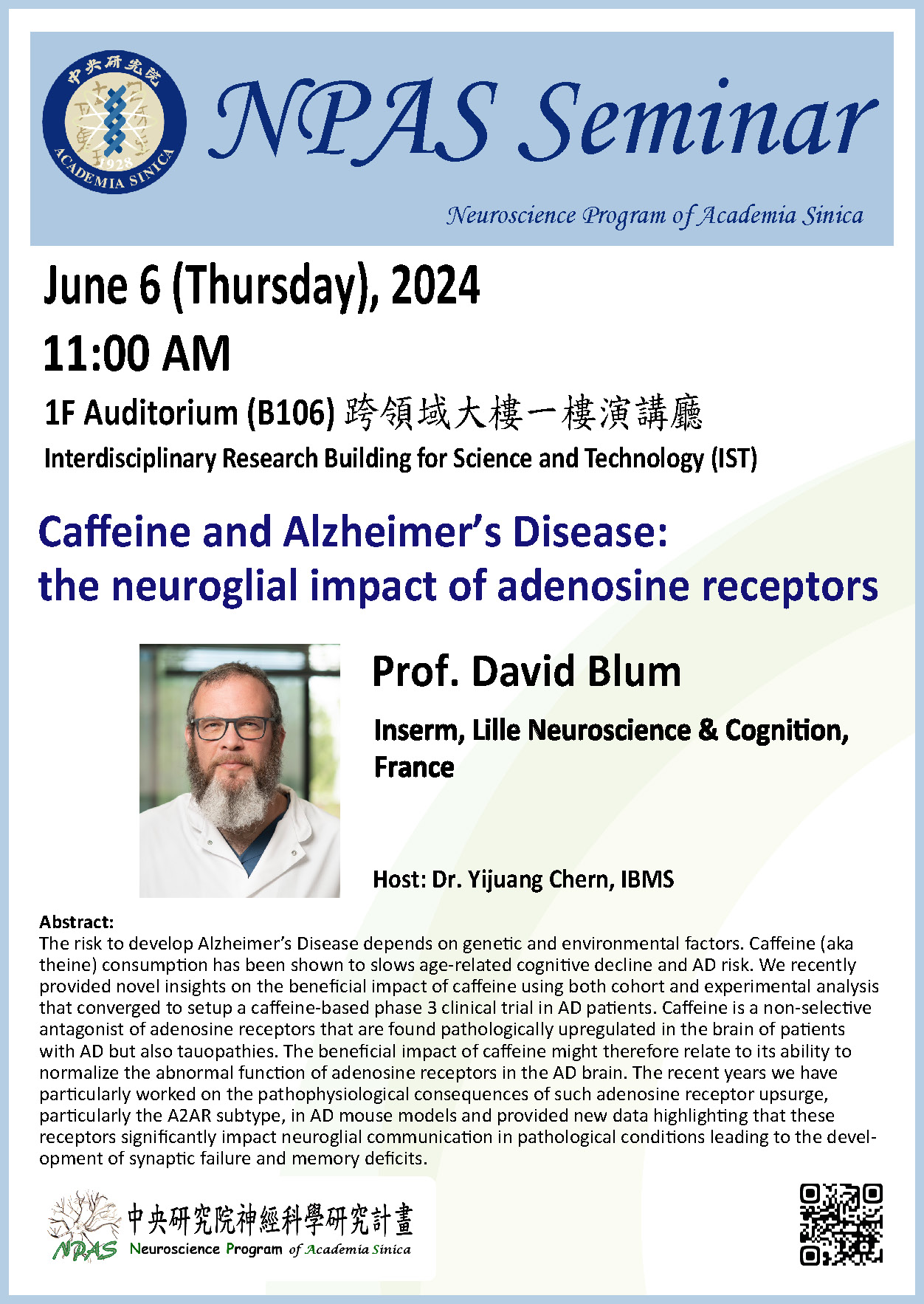- 演講或講座
- 生物醫學科學研究所
- 地點
跨領域大樓一樓演講廳
- 演講人姓名
David Blum教授 (Inserm, Lille Neuroscience & Cognition, France)
- 活動狀態
確定
- 活動網址
The risk to develop Alzheimer’s Disease depends on genetic and environmental factors. Caffeine (aka theine) consumption has been shown to slows age-related cognitive decline and AD risk. We recently provided novel insights on the beneficial impact of caffeine using both cohort and experimental analysis that converged to setup a caffeine-based phase 3 clinical trial in AD patients. Caffeine is a non-selective antagonist of adenosine receptors that are found pathologically upregulated in the brain of patients with AD but also tauopathies. The beneficial impact of caffeine might therefore relate to its ability to normalize the abnormal function of adenosine receptors in the AD brain. The recent years we have particularly worked on the pathophysiological consequences of such adenosine receptor upsurge, particularly the A2AR subtype, in AD mouse models and provided new data highlighting that these receptors significantly impact neuroglial communication in pathological conditions leading to the development of synaptic failure and memory deficits.









 首頁
首頁

